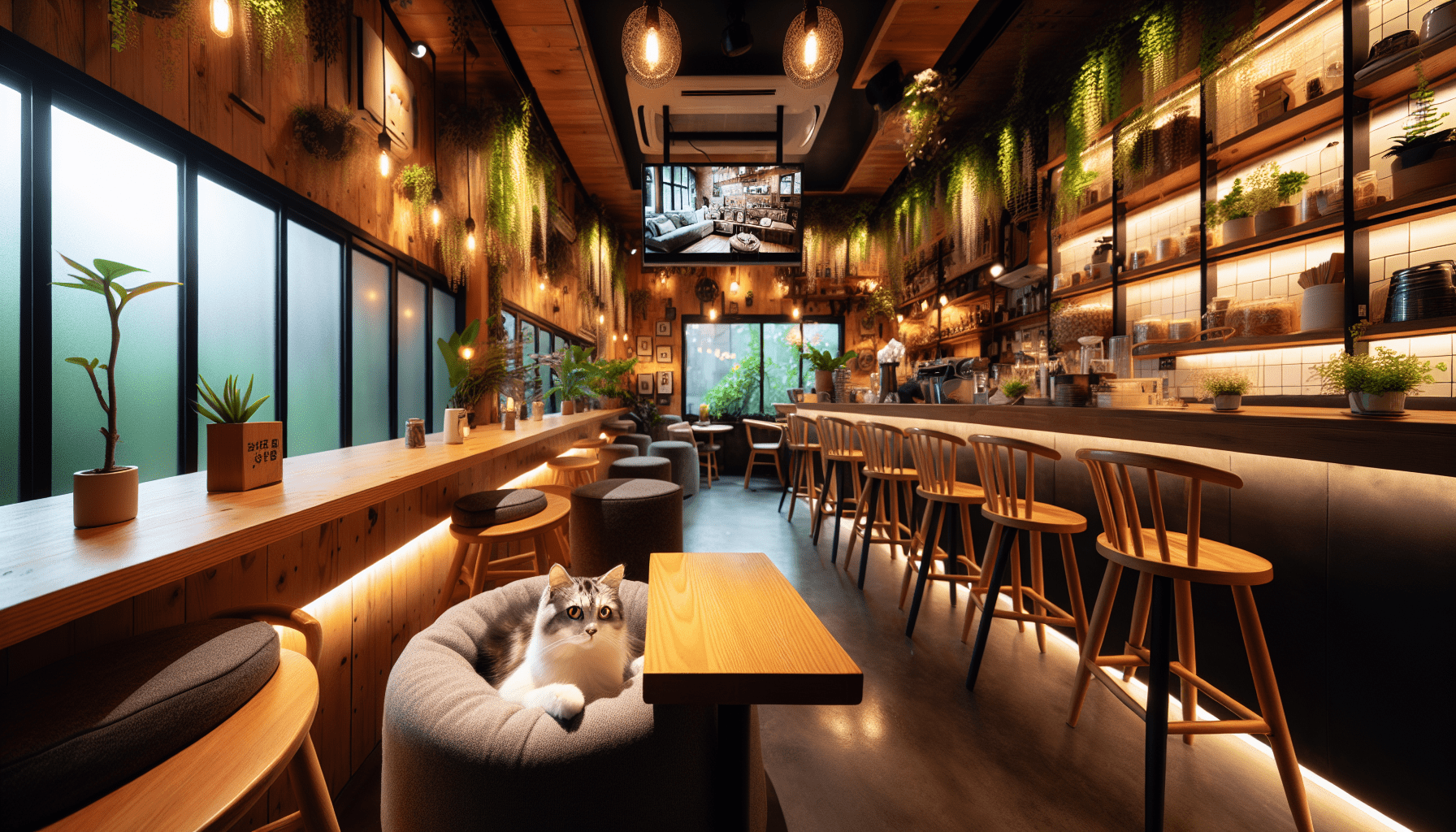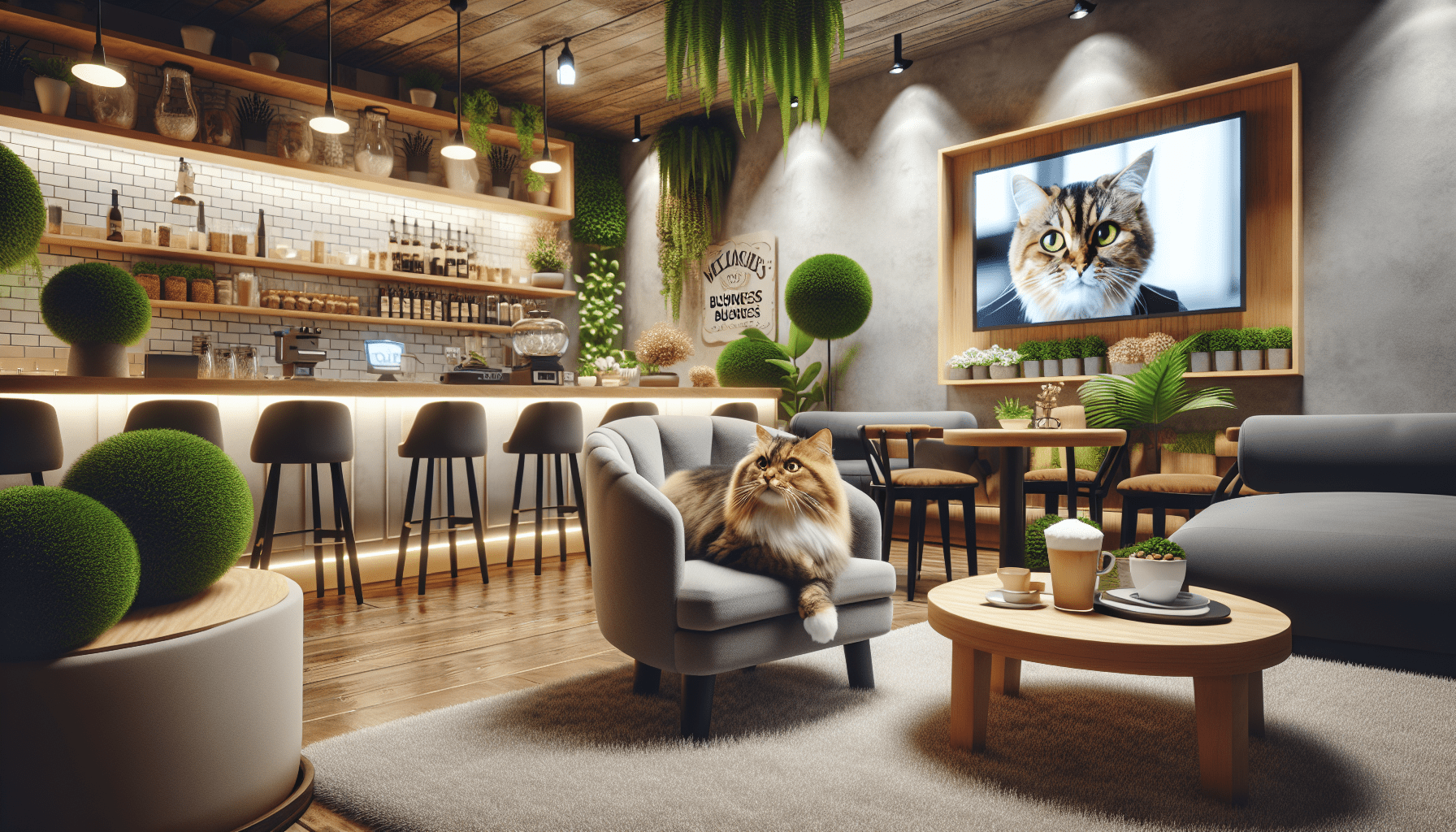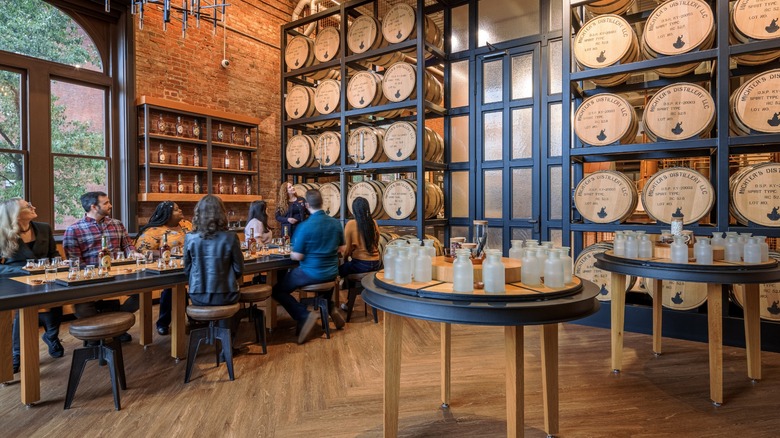BAGAIL 4 Set/6 Set/8 Set Compression Packing Cubes Travel Accessories Expandable Packing Organizers(Black ClothPattern 4 Set)
$15.99 (as of January 8, 2025 23:29 GMT +00:00 - More infoProduct prices and availability are accurate as of the date/time indicated and are subject to change. Any price and availability information displayed on [relevant Amazon Site(s), as applicable] at the time of purchase will apply to the purchase of this product.)Gato Cafe is a story that reflects the heartfelt dreams and tough realities faced by many entrepreneurs. When Adriana Montano pitched her innovative cat cafe idea on “Shark Tank,” she hoped to blend a coffee shop with a cat adoption space, pulling inspiration from successful ventures in Asia and Europe. Unfortunately, her pitch failed to secure investment due to lack of a solid business plan, and crowdfunding efforts also fell short. Despite the noble goal of providing a haven for cats and facilitating their adoption, Gato Cafe never came to fruition. While Montano and her co-owner Michael Meng have since stayed out of the entrepreneurial spotlight, the cat cafe concept itself continues to thrive across North America. Have you ever heard about the fascinating idea of a cat café? If you’re a cat lover or a “Shark Tank” enthusiast, you might have come across the story of Gato Cafe. This was an innovative venture pitched on the popular reality TV show “Shark Tank.” So, what happened to Gato Cafe after its appearance on the show? Let’s dive into the interesting journey of Gato Cafe and its founders.

Get an Official Zagat Restaurant Guide
The Brilliant Concept of Gato Cafe
The concept of Gato Cafe was undeniably innovative and timely. Adriana Montano, the brains behind the idea, envisioned a wonderful combination of a coffee shop and a cat hangout. Here, cats from a local animal shelter would live and interact with patrons, and they would be available for adoption. It’s a win-win: coffee lovers get a unique experience, and adorable cats get a chance to find a forever home.
Origins of the Cat Cafe
Cat cafes have their roots in Asia. The first one opened in Taipei, Taiwan, in 1998. This novel idea quickly spread to Tokyo, Japan, where it gained immense popularity. Before Gato Cafe pitched on “Shark Tank,” the cat cafe concept was still relatively new in the U.S., with only a handful popping up in big cities like New York and Los Angeles.
Adriana Montano’s Vision
Adriana Montano, a native of Barranquilla, Colombia, and a resident of Florida, saw the potential for cat cafes in the U.S. With her background in cat rescue and experience working with the non-profit Alley Cat Allies, she was passionate about creating a space where cats could roam freely and interact with coffee-loving patrons.
Gato Cafe’s Pitch on “Shark Tank”
Appearing on “Shark Tank” is a dream for many entrepreneurs. Montano, seeking $100,000 in exchange for 15% equity in Gato Cafe, took a shot at convincing the sharks to invest in her cat-filled coffee paradise.
The Financial Breakdown
Long-time viewers of “Shark Tank” know how crucial valuation is. If 15% equity is valued at $100,000, then Gato Cafe was valued at approximately $667,000. However, there was a catch: Gato Cafe was still just an idea. Montano had only raised $2,000 and didn’t have a concrete business plan in place.
The Sharks’ Reaction
The sharks — including GoPro founder Nick Woodman and regulars Mark Cuban, Lori Greiner, Kevin O’Leary, and Daymond John — were not thrilled about investing in a concept without an established business. They pointed out that investors could start a cat cafe without her help. Despite being a cat lover’s dream, the pitch was considered a fail as it didn’t result in a deal.
Efforts Post “Shark Tank”
Although Gato Cafe didn’t secure funding on the show, Montano didn’t give up immediately. She had local media interest and even the support of the Broward County Humane Society. She also attempted crowdfunding to turn her dream into reality.

Get an Official Zagat Restaurant Guide
Exploring Gato Cafe’s Detailed Plans Before “Shark Tank”
Montano started thinking about opening a cat cafe years before she pitched on “Shark Tank.” Her roles in feline advocacy and her awareness of successful cat cafes in Asia and Europe made her confident in the idea’s potential.
Detailed Business Strategy
Together with her husband and co-owner, Michael Meng, Montano had planned the cafe’s operation meticulously. They intended to charge a cover fee for patrons to enter the cafe and enjoy a unique experience with cats. They also determined an optimal ratio of humans to cats to ensure both groups could enjoy their time comfortably.
Location and Franchising Plans
They narrowed down potential locations for the first Gato Cafe in Boca Raton or Delray Beach, Florida. They also had ambitious plans for franchising across the Southeastern U.S. if the initial location proved successful.
Benefits for Cats
A significant beneficiary of Gato Cafe was intended to be the cats themselves. Not only would these cats get to live cage-free, but they would also have the opportunity to find new homes with patrons who grew fond of them. Essentially, Gato Cafe aimed to save lives through adoption.
The Harsh Reality Post “Shark Tank”
Despite the well-thought-out concept and genuine passion behind Gato Cafe, the dream did not translate into reality. The cafe never opened its doors to patrons.
Lack of Business Planning
The major hurdle Gato Cafe faced was sound business planning. Seeking a substantial investment to cover expenses without any proven track record of generating sales was a significant drawback. Investors, including the sharks, generally prefer to see a concrete proof of concept.
Crowdfunding Efforts
Montano and Meng turned to crowdfunding to raise the necessary funds. On Indiegogo, they set a goal of $75,000 but managed to raise only $330 from a handful of supporters. This was a clear indicator that the project lacked the widespread interest and backing it needed.
The Disappearance of Gato Cafe
Unfortunately, with insufficient funds and no investment partners, Gato Cafe never came to fruition. The website and social media channels for Gato Cafe have since gone dark, and the project appears abandoned.
Low Profile of Founders
Since the failure of Gato Cafe, Montano and Meng have maintained a low profile. They haven’t ventured into new businesses or made any public statements about future plans. They seem to have stepped out of the spotlight to reflect on what could have been.
The Legacy of Cat Cafes
Despite Gato Cafe’s failure, the concept of cat cafes has continued to thrive. According to Meow Around, there are currently 144 cat cafes operating in North America, proving that the idea has enduring appeal.
Lessons to Learn from Gato Cafe’s Journey
The story of Gato Cafe is both inspiring and cautionary. It highlights the importance of turning a great idea into a sustainable business model. Passion is essential, but so is execution.
The Importance of Solid Business Planning
Entrepreneurs take note: bringing a unique concept to life requires careful planning and a robust business model. Investors look for a combination of passion, preparation, and proof of profitability.
The Power of Community Support
While crowdfunding can be a useful tool, it’s crucial to build a strong community and generate interest before launching a campaign. Engaging potential supporters early on can make a significant difference.
Resilience and Adaptability
Lastly, the ability to adapt and remain resilient in the face of challenges is crucial for any entrepreneur. Although Gato Cafe didn’t make it, other ventures inspired by the same concept did succeed, showing that sometimes timing and flexibility can lead to success.
The Current State of Cat Cafes in North America
The concept of cat cafes has proven to have legs. Since Gato Cafe’s failed attempt, many cat cafes have opened successfully throughout North America. Let’s explore the landscape of modern cat cafes.
A Booming Trend
Cat cafes have blossomed into a booming trend. These establishments offer a unique twist on the standard coffee shop experience, providing a cozy environment where patrons can enjoy both coffee and the company of cats.
Benefits for Cats and Humans
Cat cafes serve multiple purposes. They offer a sanctuary for cats in need of homes, and they provide therapeutic benefits to humans, who can enjoy the calming presence of cats while sipping their favorite beverage.
Notable Success Stories
Several cat cafes have become notable success stories, such as:
- Cat Town Cafe in Oakland, California: Known for its welcoming environment and successful cat adoption program.
- KitTea in San Francisco, California: Combines tea service with feline companionship and has facilitated numerous cat adoptions.
Statistics on Cat Cafes in North America
Here’s a quick look at the growth of cat cafes in North America:
| Year | Number of Cat Cafes |
|---|---|
| 2015 | 10 |
| 2016 | 30 |
| 2018 | 100 |
| 2023 | 144 |
Future Prospects
The future looks bright for cat cafes. As more people discover the joy of these unique establishments, the trend is likely to grow. Entrepreneurs can learn from past failures and successes to create thriving cat cafes that benefit both cats and their human patrons.
Conclusion
The tale of Gato Cafe is a fascinating journey of innovation, passion, and the harsh realities of entrepreneurship. While Gato Cafe itself didn’t succeed, the idea behind it has flourished. Cat cafes continue to pop up across North America, offering delightful experiences for cat lovers and new opportunities for cats in need of homes.
So the next time you find yourself in a city with a cat cafe, remember the story of Gato Cafe and the potential it saw—a vision that lives on in the many cat cafes now dotting the landscape. Perhaps there’s a little Gato Cafe spirit in every cat cafe you visit.
Get an Official Zagat Restaurant Guide






